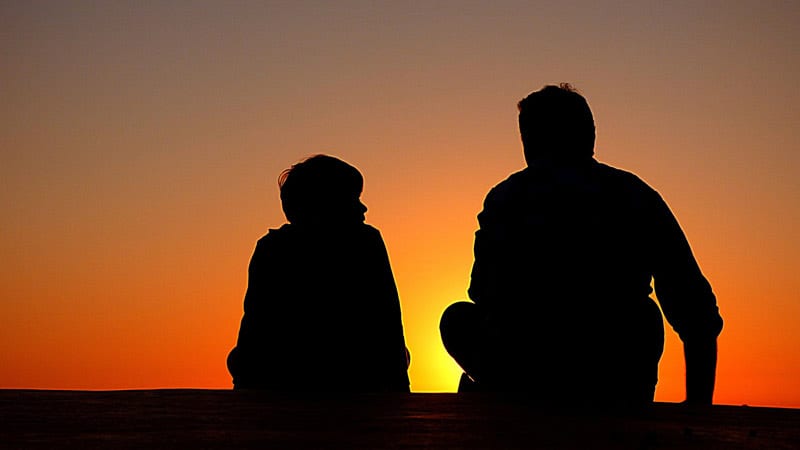When parents decide to dissolve their marriage, the children can feel as if their universe has been turned upside down. So, what are the impacts of divorce on children’s mental, emotional, and physical health?
While divorce is stressful to all kids, some children rebound or recover faster than others. The level of upset can vary depending on the age of the children, how their parents separated, the support they get from their extended family, parents, and friends, and how much they understand.
1. Children struggle
Researchers have found that the first year after parents’ separation is the toughest for kids. They are likely to experience anger, disbelief, anxiety, and distress. Many children seem to bounce back, as they get used to the changes and grow comfortable with their living arrangements.
However, separation from a parent can be a major challenge for some kids and result in lifelong issues.
2. Emotional impact on children
Divorce or separation creates an emotional turmoil for the whole family, but for children, the situation can be confusing, frustrating, and scary.
- Teenagers may start blaming one parent for the divorce or even resent both parents for the upheaval and sudden change in the family.
- Grade school kids may worry that the dissolution of the marriage is their fault, and therefore assume they did something wrong or caused it by behaving badly.
- Young children struggle to understand why their parents are living apart. They even worry that their parents will stop loving them.
3. Divorce and children’s mental health
Separation and divorce may increase the risk of mental health issues in kids. Regardless of culture, gender, and age, studies show that children of divorced parents experience increased physical health issues.
Separation may trigger an adjustment disorder in a child, which resolves within months. Nevertheless, studies also find that anxiety and depression rates are higher in kids with divorced parents.
4. Academic performance
Many kids from divorced families do not perform well academically. Also, parental divorce has been linked with higher dropout and truancy rates.
5. Behavior issues
Kids from divorced families may be faced with more externalizing issues, such as impulsive behavior, delinquency, and conduct disorders. Additionally, they may undergo more conflict with their peers following a separation.
6. Take risks
Teenagers with divorced parents are more likely to take risks, such as early sexual activity and substance use. Parental divorce early in a child’s life has been associated with higher numbers of sexual partners during adolescence.
7. Problems extending into adulthood
Some studies link parental separation to increased substance use problems, psychiatric hospitalizations, and mental health issues in adulthood. Researchers also offer evidence that parents’ separation could be related to negative outcomes in terms of romantic relationships, work, and education in young adulthood.
Adults who experienced divorce or separation in childhood tend to have more financial and employment problems and lower occupational and educational attainment. In addition to that, divorce rates are higher for persons whose parents were separated.
Conclusion
Parents play a significant role in how well kids adjust to separation and divorce. Some strategies that can help reduce the emotional and mental toll divorce has on children, include:
- Having a healthy communication and co-parenting style after the divorce
- Maintaining a healthy relationship with the child
- Not putting children in the middle
- Using consistent discipline
- Seeking professional assistance – family law specialists can be of great help
- Attending parenting education programs
- Helping your kids feel secure and safe
- Empowering your child
- Monitoring adolescents closely
Author Bio: Patrick Watt is an Australian writer. He has researched and written content and articles for over 9 years. He is a contributor to various sites and companies including Streeter Law Firm, which provides specialist family lawyers in Sydney to achieve outcomes that lessen hostility in otherwise fractured relationships and focus on what is best for the children. Find Patrick on Twitter @patrickwattpat
Image by Free-Photos from Pixabay
The opinions and views expressed in this guest blog do not necessarily reflect those of www.rtor.org or its sponsor, Laurel House, Inc. The author and www.rtor.org have no affiliations with any products or services mentioned in this article or linked to herein.
Recommended for You
- The Truth about Relapse in Addiction Recovery - April 14, 2025
- The Power of Peer Support in Mental Health Recovery - April 10, 2025
- Artificial Intelligence in Anxiety Management: How AI Helps Users Cope with Anxiety Symptoms - April 3, 2025






Thanks for sharing this. There’s a big impact of divorce when it comes to the health and well-being of the children. It causes stress, anxiety and depression. Children tend to have changes in their behavior like to engage themselves in stealing or fighting with their other children. Seeking the help of child psychologists and counselling will make them understand their role in a divorce and can reduce their feelings of guilt.